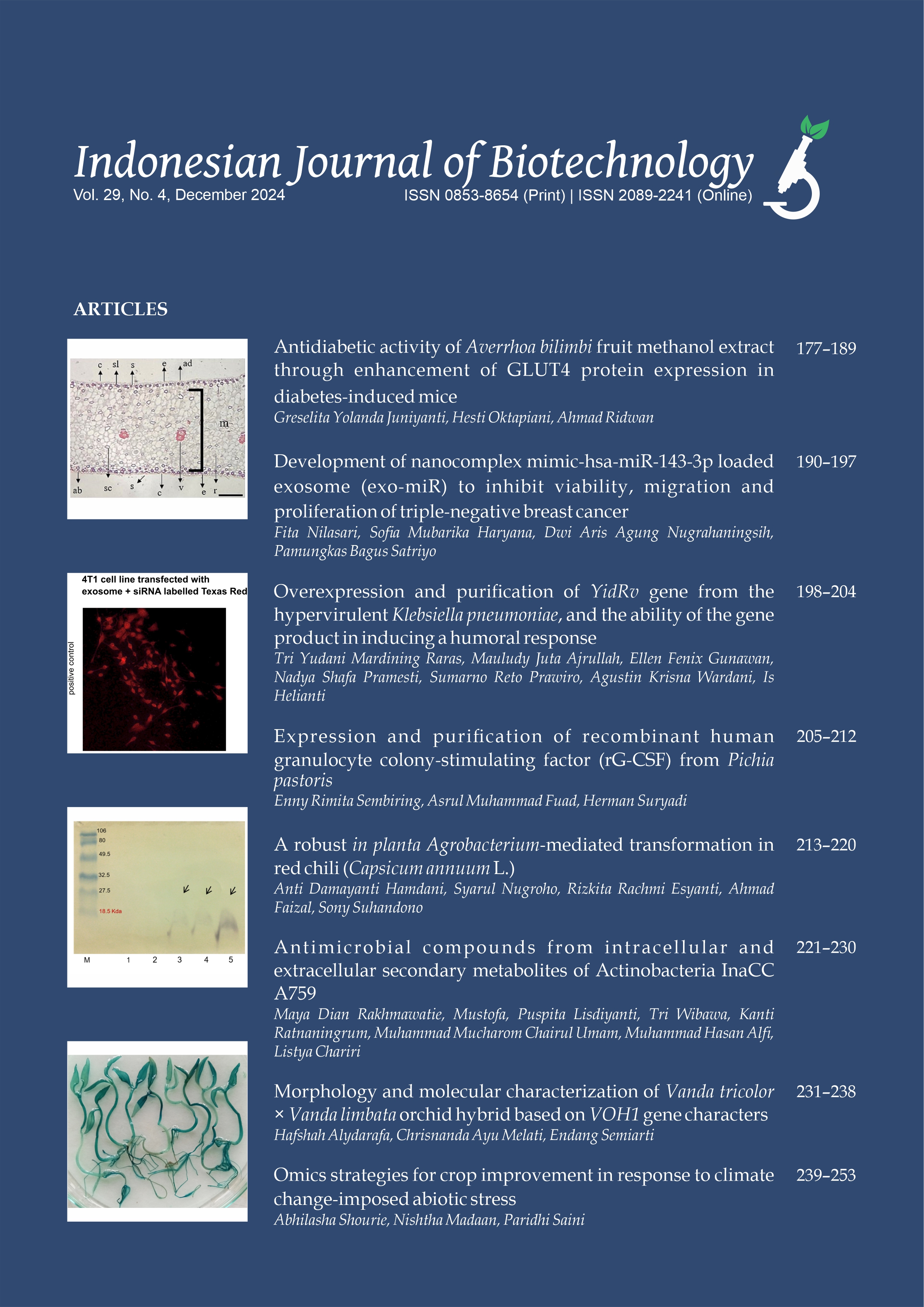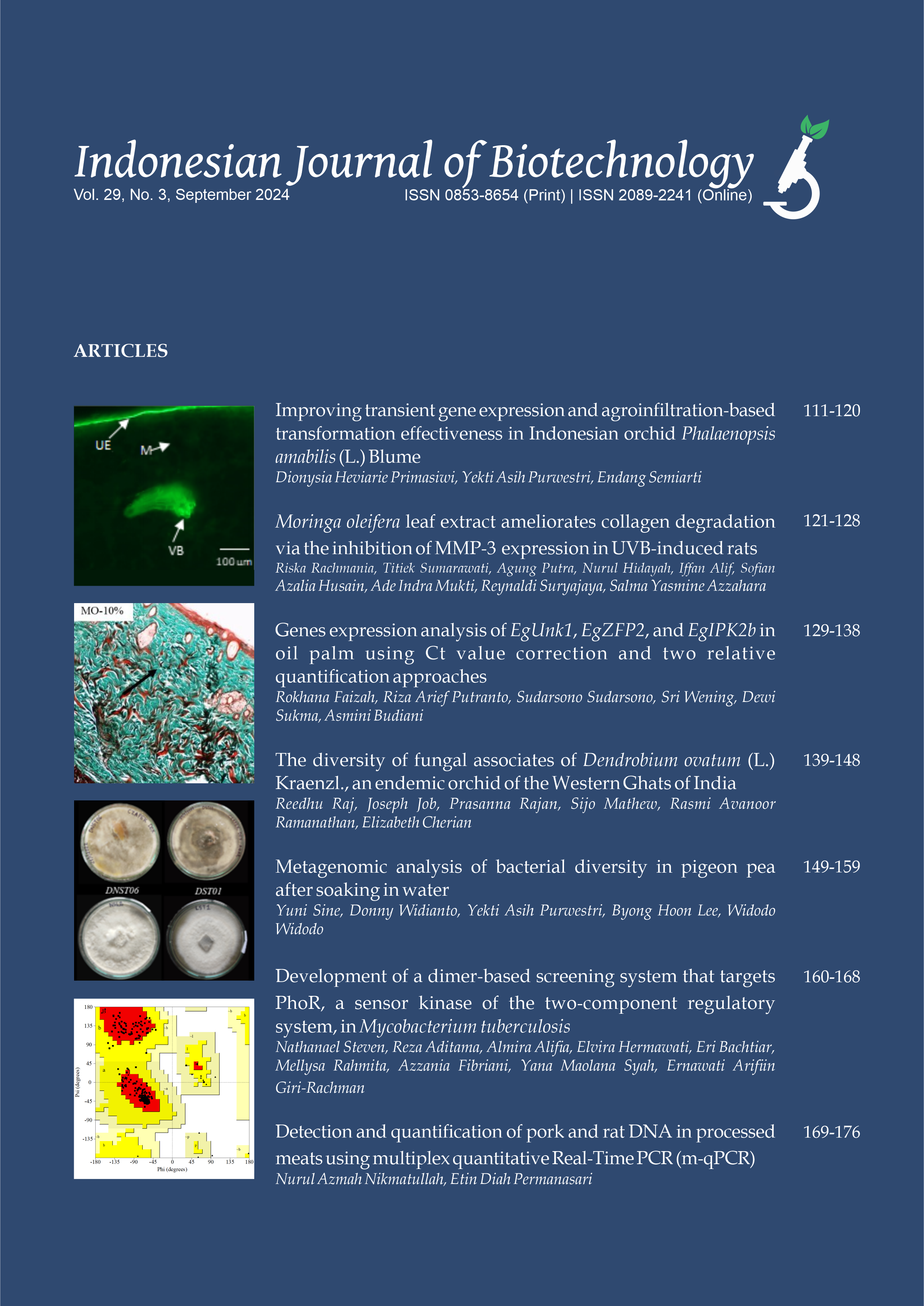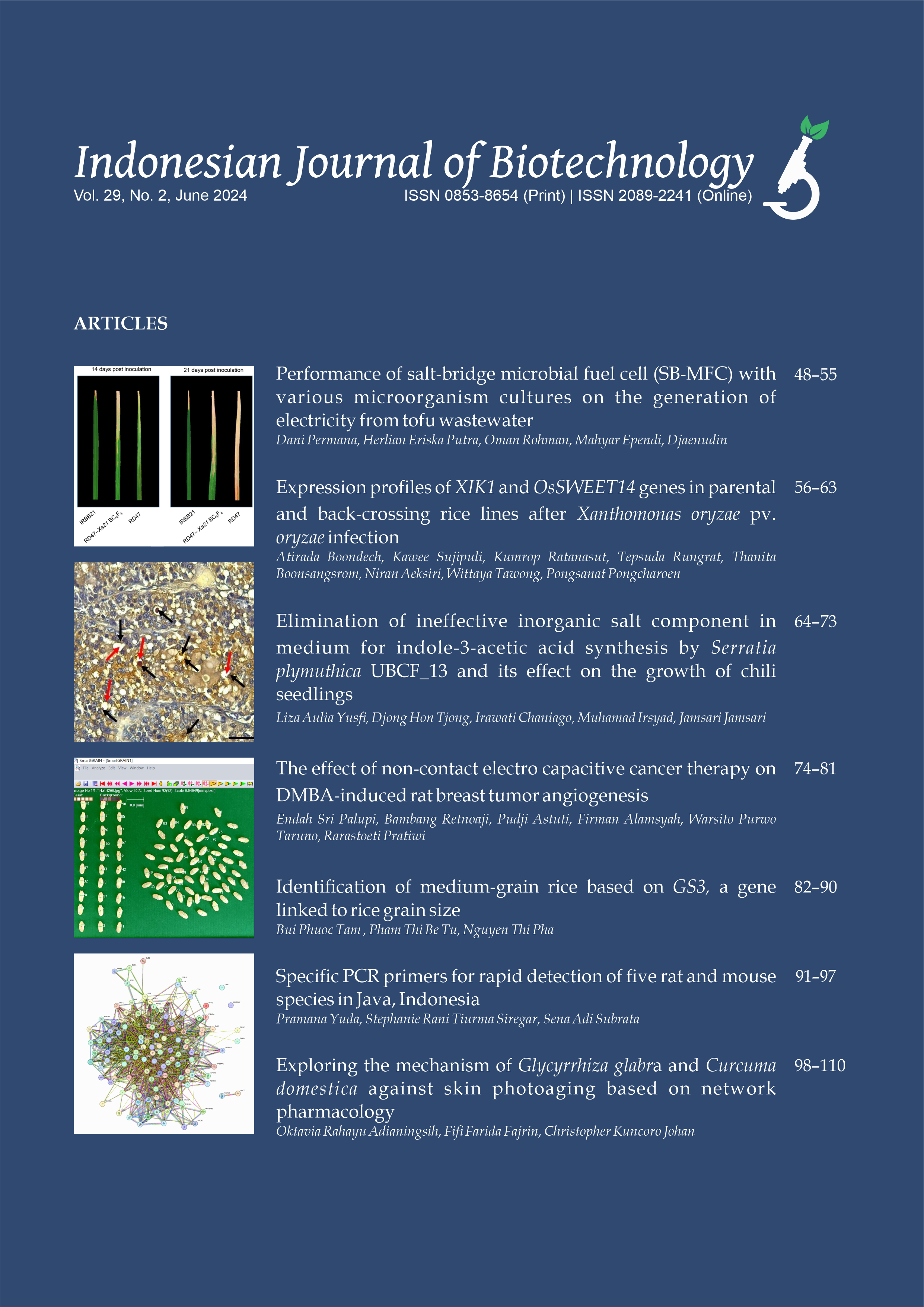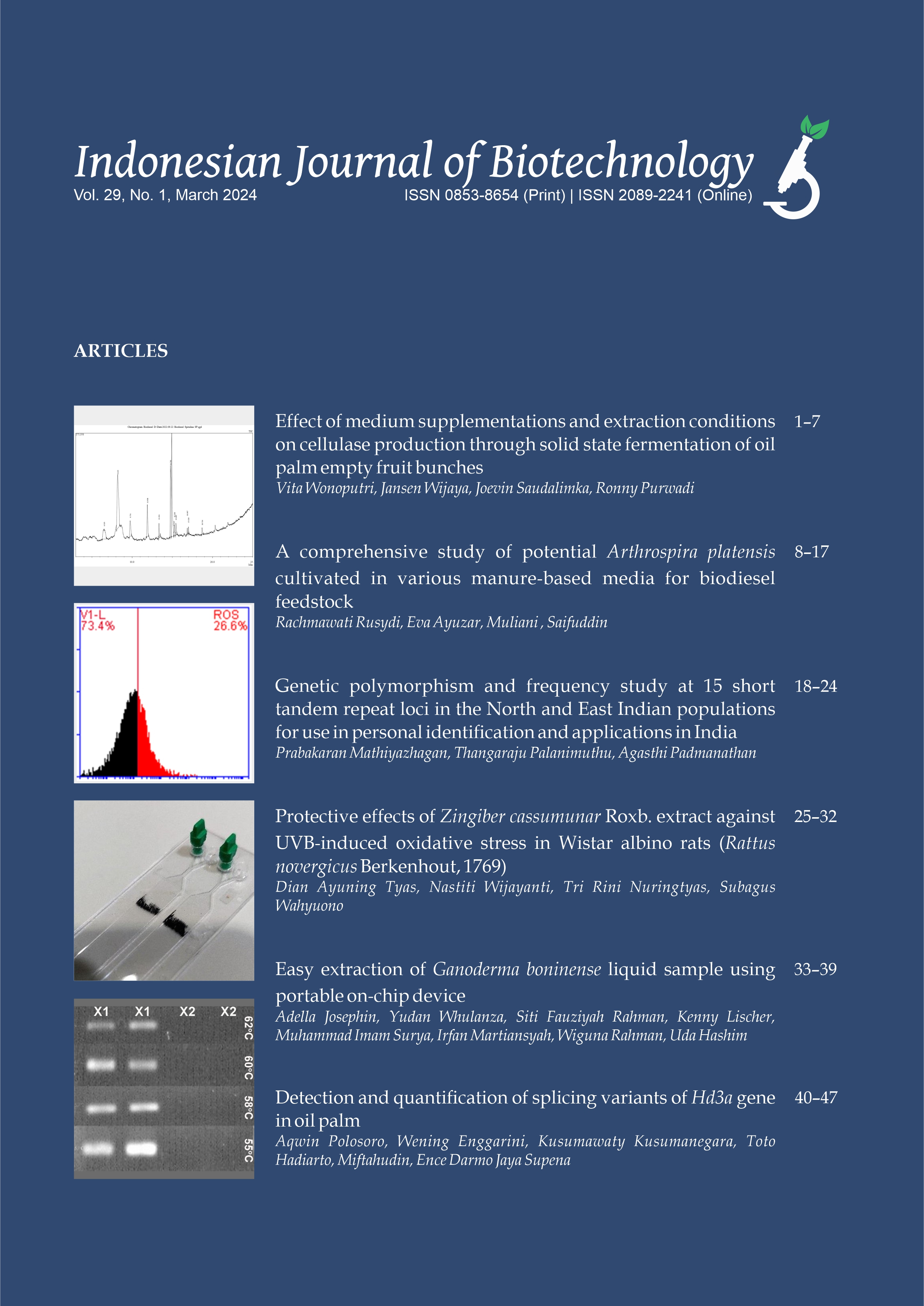A Single Base Substitution Adjacent to the Stop Codon in the downstream of the SMP3 gene Affects its Post-trancriptional process in Saccharomyces cerevisiae
Donny Widianto(1*), Yukio Mukai(2), Kenji Irie(3), Hiroyuki Araki(4), Yasuji Oshima(5)
(1)
(2)
(3)
(4)
(5)
(*) Corresponding Author
Abstract
The smp3-1 mutant allele confers increased holding stability of heterologous plasmid, pSR1, and a temperature-sensitive growth defect which is remediable by the addition of 1 M sorbitol as the osmotic stabilizer. The smp3-1 allele contains two base substitutions; one is in the open reading frame and changed the 490th CAT (encoding Histidine) to TAT (tyrosine), and the other one is an A for G substitution, at 2 bp downstream from termination codon. These base substitutions were separated each other by recombination at a BstNI site located between these two substitutions. The base substitution in the 3'' untranslated region was found to be lethal and the defect was unremediable by the osmotic stabilizer, while that in the open reading frame has no appreciable effect to the cell. Thus, both the base substitutions join together confer the smp3-1 mutant phenotype. The smp3-1 mutant cells cultivated at 37 OC in nutrient medium containing 1 M sorbitol showed similar smp3 transcription as in the wild type. These facts suggest that smp3-1 mutation has a defect in its post-transcriptional process.
Full Text:
PDFArticle Metrics
Refbacks
- There are currently no refbacks.
Copyright (c) 2015 Indonesian Journal of Biotechnology









